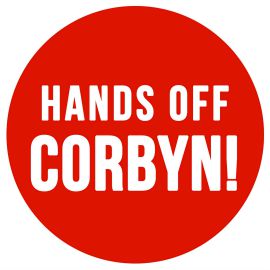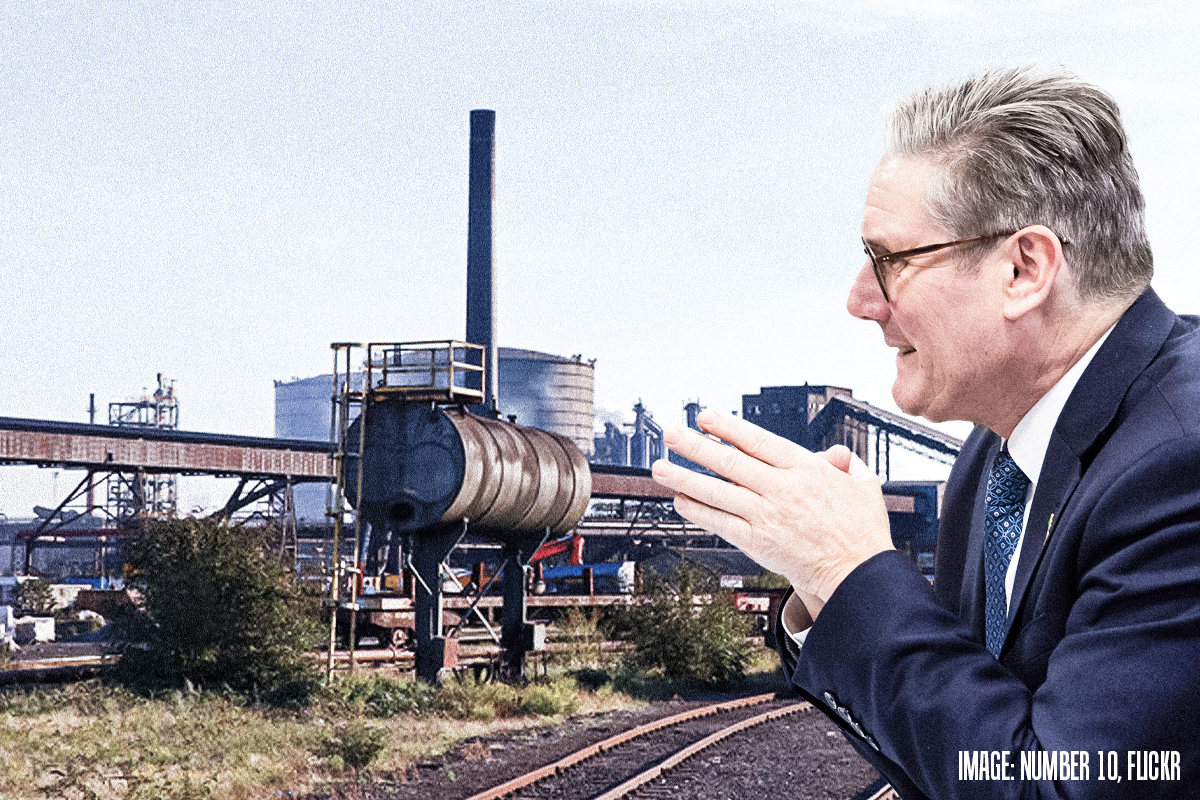In order to harness the energy of the Corbyn leadership campaign, left-wing Labour MPs and other Corbyn supporters have announced the launch of “Momentum”. However, this new radical group within the labour movement has rattled the right-wing, who are afraid of the power an organised left-wing movement might have.
Jeremy Corbyn’s campaign for the Labour leadership opened the lid on the seething anger against austerity and the whole political establishment within society. His landslide victory was a political earthquake that left the right wing visibly shaken.
Immediately the Tories, the media, and the Blairites organised a campaign of attacks and slander aimed at destabilising Corbyn, so as to undermine him and potentially prepare for a future leadership coup.
Although Corbyn is isolated within the Parliamentary Labour Party, he has enormous support, both within the party membership and outside the party, amongst the wider movement of workers and youth. If Corbyn is to survive the right wing attacks, he must mobilise this support. Hence the launch of Momentum, a new organisation designed to build on the energy of Corbyn’s leadership campaign.
Immediately after Corbyn’s election as Labour leader, the Tories declared him “a threat to national security and your family”. Their friends in the media spewed forth a torrent of slander and lies. The Blairites developed a strategy to undermine him at every opportunity. They think that if they bide their time, the buzz around Corbyn will die down. They hope that if enough filth is thrown from the media, some of it will stick. Only then will they will stick in the knives.
Unity with enemies?
So far, Corbyn himself has responded timidly to such attacks, calling instead for “unity”, and for the party to be a “broad church”. But calls for unity cannot be raised in the abstract. Real working class unity is needed, based on fighting for a common programme to change society.
But there is also another unity: that put forward hypocritically by the right wing, who appeal to unity when their own careers and positions are threatened. By appeals to “unity”, these people really want unity on their terms; the free reign to impose their own programme – the programme of big business – onto the membership.
Take for example Simon Danczuk, Labour MP for Rochdale, who stated before Corbyn’s victory that he would work to overthrow Corbyn “from day one… if not before”. True to his word, Danczuk has provided article after article for the Daily Mail, slamming Corbyn and his supporters. Now, when faced with calls for his de-selection from members, Danczuk stated: “We are supposed to be a broad church, so just because we have a left-wing Labour leader doesn’t mean more moderate MPs have to be deselected or silenced”.
Corbyn’s supporters, however, understand quite clearly that unity with such wolves, hungry to destroy him at the first opportunity, is no real unity at all, and is in fact a recipe for disaster.
It is clear then that Corbyn and his supporters cannot stand still. The agents of the bosses and bankers in the party (a.k.a. the Blairites) will not wait forever before they move against Corbyn. Corbyn’s support in the Parliamentary Labour Party is extremely weak: he only received the genuine support of about 20 MPs in order to even get on the ballot. Ninety per cent of his shadow cabinet, in reality, do not support him!
Such a situation cannot last: either we can do nothing, and wait for a cabal of right wing MPs – who do not represent the wider Labour membership – to ride roughshod over the democratic will of the majority of the membership and remove Corbyn; or Corbyn and his supporters can go on the offensive against those MPs seeking to destroy him. This way we can rid the party of careerist apologists for big business, and really begin the fight against the Tories and for an anti-austerity, socialist programme.
Supporters to get organised
 Corbyn’s leadership campaign saw hundreds of thousands of people either join as members of the party, affiliated trade unionists, or registered supporters. Over 70,000 people have joined since Corbyn’s victory. Many more could join in the next period, provided Corbyn remains true to his programme.
Corbyn’s leadership campaign saw hundreds of thousands of people either join as members of the party, affiliated trade unionists, or registered supporters. Over 70,000 people have joined since Corbyn’s victory. Many more could join in the next period, provided Corbyn remains true to his programme.
The key question is how to organise these supporters of Corbyn, both inside and outside the party, to defend him against the attacks of the right wing. The launching of “Momentum”, as the continuation of Corbyn’s leadership campaign, is a key step forward in this struggle.
There is a real danger that if new members turn up at their ward meetings or CLP meetings, they will become quickly isolated by the existing bureaucracy, which is a hangover from the past period. Already, the right wing have cheerily proclaimed how they will successfully demoralise new members by suffocating them in dreary meetings about business. Many CLP meetings lack any sort of political discussion, or any reason to attract enthusiastic youth looking to change society. The right wing hope that for many new members, their first meeting will also be their last. This must not be allowed to happen.
Harness the Momentum
Although still in its infancy, the stated aims of Momentum include to:
-
“Organise in every town, city and village to create a mass movement for real progressive change.
-
“Make Labour a more democratic party, with the policies and collective will to implement them in government.
-
“Bring together individuals and groups in our communities and workplaces to campaign and organise on the issues that matter to us.”
This is to be achieved by:
- “Organising events, rallies, meet ups and policy consultations to encourage mass mobilisation for a more democratic, equal and decent society.
- “Encouraging those inspired by Jeremy Corbyn’s campaign to get involved with the Labour Party. Assisting members in making their voice heard in Labour Party debates.”
This is precisely what is needed if Corbyn is to harness the enormous support that exists for his anti-austerity programme, and to reclaim the Labour Party for the working class. By organising new members around lively political campaigns, the enthusiasm of many getting involved in politics for the first time should not be crushed by the existing stifling atmosphere of the Labour Party.
Furthermore, by organising Corbyn supporters in each area to defend him against the right wing, the struggle is far more likely to succeed than if left to the chance activity of isolated individuals.
Right wing rattled
 The potential of this movement to take off has clearly rattled the right wing. Before, the Corbyn movement was fairly amorphous, mainly consisting of large rallies, without any structures through which the energy could be channelled and harnessed.
The potential of this movement to take off has clearly rattled the right wing. Before, the Corbyn movement was fairly amorphous, mainly consisting of large rallies, without any structures through which the energy could be channelled and harnessed.
Now with Momentum, however, the Corbyn movement has a potential national structure to direct the enthusiasm of those freshly drawn into political activity. Right-wing Labour MPs, therefore, are understandably terrified that Momentum could become a mass movement that will sweep them aside through a wave of de-selections. They could lose their lucrative careers, which they correctly see as under threat.
The launch of Momentum has further exposed the massive chasm in the Labour Party between Corbyn, McDonnell and ordinary members on the one side, and the Blairite MPs of the Parliamentary Labour Party on the other – a gulf that was already evident from the attacks against Corbyn during the leadership campaign.
Tensions within the party are therefore running extremely high, as evidenced by the meeting of the Parliamentary Labour Party on Monday 12th October, described by one longstanding Labour MP as “the worst I have ever been to”.
MPs were furious with John McDonnell for (correctly) announcing that Labour would no longer support the Tory’s Fiscal Charter; in the process, these Blairites once again exposed themselves as supporters of Tory austerity.
Furthermore, the right-wing MPs went into an apoplectic rage over the announcement of the creation of Momentum. When Richard Burgon, a Corbyn supporter and MP spoke to defend the launch of this new group, other MPs let rip into him, with one MP stating that “it looked at one point like they weren’t even going to let him finish”.
So shaken are the right wing, that some, including Dan Hodges (a former Labour official, now a Telegraph columnist), have taken to describing it as a return of the Militant – i.e., as a party within a party. This is clearly just scare tactics, and bears no relation to reality. Momentum is not an organisation that has entered the Labour Party. It is instead the organic development of Corbyn’s leadership campaign, and represents a genuine mass movement of thousands of people.
Even before Corbyn’s victory, supporters of his leadership campaign were asked by volunteers at Corbyn’s phonebanks if they would be interested in turning the leadership campaign into a grassroots movement in the event of his victory. Corbyn is simply following through with his campaigning pledge to re-democratise the party, and to develop a broad social movement against the Tories and austerity.
Hypocrisy of the Establishment
The crime of Corbyn in the eyes of the right wing is that he is organising the working class and the left-wing, radicalised youth. When Tony Blair became leader of the Labour Party in 1994, he subsequently set up “Progress”, an organisation financed by big business, which had its own membership, campaigned on its own programme, and ran slates for internal party elections.
Where then were the howls of indignation from the right about the setting up of an internal “party”? Similarly, where is the criticism of the Fabians, another right-wing organisation within the Labour Party? As always, it is one rule for the bosses and their lackeys, and another for the rest of us.
Luke Akehurst, Secretary of Labour First, (an organisation within the party set up to keep the party “safe from the organised hard left”), expressed this hypocrisy quite clearly in an interview on the BBC’s Daily Politics Show (13th October). After criticising Momentum for being an organisation within the party, he stated that:
“If they come and try to fundamentally change the composition of all the democratic structures of the party, whether that’s trying to change the composition of the PLP, or local councils, or the Policy Forum, or the NEC, or conference delegates, well, those are democratically contested elections, and we will contest them. They might find that there are more of us and that we’re better organised than they expected. We’re not just going to roll over” (our emphasis).
Yet again, another fine display of the stinky hypocrisy of the Labour Establishment and bureaucrats, who are really the ones who treat the Party, its democratic structures, and its members with contempt.
Socialist programme
 The task now is to build Momentum into a campaigning, fighting organisation, capable of defending Corbyn against the right-wing; and also of going on the offensive against the Tories and their programme of austerity.
The task now is to build Momentum into a campaigning, fighting organisation, capable of defending Corbyn against the right-wing; and also of going on the offensive against the Tories and their programme of austerity.
In order to inspire millions of people to join Momentum and build such a genuine mass movement, it needs to be armed with its own clear programme – that is, a bold socialist programme.
Such a programme would include the restoration of the old Clause IV of the Labour Party constitution – that is, to fight for workers’ democratic control of the “commanding heights of the economy”, in order to plan production to meet people’s needs. By doing so, we would actually be able to implement the progressive demands put forward in Corbyn’s programme, including protecting the NHS, the mass building of council homes, and the scrapping of tuition fees.
Corbyn’s leadership campaign gave a glimpse of what a real mass movement could look like, when given something positive to fight for. It put to rest the idea that young people are apathetic. For example, over 16,000 volunteered to help secure Corbyn’s victory.
Now it is necessary to build on that energy, and organise to finish the job: the job of defending Corbyn against the right wing; the job of reclaiming the Labour Party from the careerist gangsters who have ruled it for decades; the job of fighting for a bold socialist programme within the labour movement, in order to end austerity and begin the socialist revolution, in Britain and internationally.






